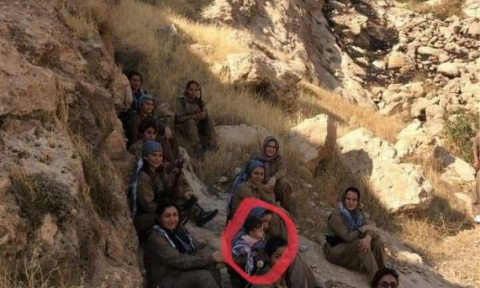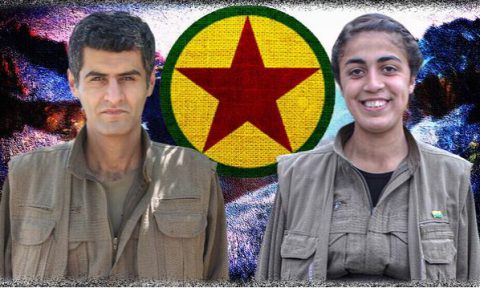By Syrians for Truth and Justice
The New York Times recently published an article about Turkey’s role protecting civilians in the areas it controls in Syria’s Afrin region. For many Americans, this will be the most recent, if not the only, news they hear about Afrin.
However, the article offers an unbalanced portrait of the reality of Turkey’s occupation of the region. While the article pays attention to the dire human rights situation journalists encountered during a trip to the Turkish controlled region of Afrin, it makes no mention of the human rights abuses committed by Turkey and its proxies in occupied northern Syria, instead portraying Turkish forces as saviors.
As an organization that monitors human rights violations in Syria, we felt compelled to address the pervasive silences we perceived in the article and speak on the current struggle for human rights in Afrin.
We invite those interested in learning more about the situation to draw on the plethora of evidence available in reports and investigations by diverse Syrian and humanitarian civil society groups. For our purposes in this piece, readers should know that Turkey is currently controlling areas in northwestern Syria with the support of the Syrian National Army, which is formed of different Syrian opposition groups, over which Turkey exercises effective control.
Turkey’s presence in Syria is officially recognized as an “occupation” under international law. Amnesty International has explained that as “the occupying power” in the area, Turkey is “responsible for the welfare of the civilian population and maintaining law and order.” For that reason, Turkish forces manage local health care, law enforcement, and public administration in the Syrian areas Turkey controls.
While commentators praise Turkey’s role in protecting displaced Syrians from military retribution by the Syrian government, and the humanitarian infrastructure Turkey provides, they often neglect the displacement of civilians during Turkey’s military engagements and the subsequent human rights and humanitarian law violations which have occurred under its occupation, both by Turkish forces and armed groups acting under Turkey’s direction and control. Not only is Turkey responsible for these human rights and humanitarian law violations, but many of these violations committed by Turkish forces and their proxies constitute war crimes and entail individual criminal responsibility.
More than 130,000 people were internally displaced by Turkey’s 2018 military operation. Turkey’s 2019 military intervention further destabilized Afrin by displacing over 180,000 people, including more than 80,000 children. Many families remain displaced due to the confiscation or destruction of their homes and stores by armed groups affiliated with the SNA and backed by Turkey. Civilians, often Kurds, who escaped the violence returned to find their property transformed into military headquarters, or used to house other internally displaced Syrians — mostly ethnic Arabs. As a result, human rights organizations like the U.N.’s OHCHR are “concerned that permitting ethnic Arabs to occupy houses of Kurds who have fled, effectively prevents the Kurds from returning to their homes and may be an attempt to permanently change the ethnic composition of the area.”
U.N. investigations determined that Kurdish families were disproportionately the victims of threats, looting, theft, and arbitrary detentions, often for ransom purposes, by opposition forces associated with and supported by Turkey.
In 2020 alone, 877 individuals were arrested across Afrin. The U.N. found that while in detention, civilians, primarily those of Kurdish origin, were beaten, tortured, starved, interrogated, and sometimes raped. Furthermore, video and photographic evidence shows that Turkish-backed brigades “looted and destroyed religious and archaeological sites of profound significance in the Afrin region,” including bulldozing cemeteries, conducting military exercises in a Syro-Hittite temple dating back to 1300 B.C., and destroying Afrin’s historic “Ali Dada” shrine.
The theft of property and land, the arbitrary detentions and mistreatment of detainees, and the destruction of cultural heritage sites, led the U.N. to conclude that many of the Turkish-backed SNA brigades may be culpable of war crimes. Both the U.N. and Amnesty International determined that in “giving Syrian armed groups free rein to commit serious human rights abuses,” the Turkish government and its officials failed in their obligation as the region’s occupying power to care for the welfare of the civilians under its jurisdiction.
The failures of Turkey to ensure the safety of civilians under its legal care do not absolve the Syrian government nor other armed groups in northern Syria of any crimes against the populace. The Syrian conflict is replete with examples of the displacement of Syrians and the destruction of their homes. Armed Kurdish groups affiliated with the SDF, like the Northern Democratic Brigade, seized the homes of Arabs in Raqqa after they claimed the city from IS, and the Assad regime’s displacement of millions of Syrians due to an indiscriminate shelling campaign against major Syrian cities is well documented. However, the actions of other parties in the Syrian conflict do not absolve Turkey from its own responsibility to protect and respect the human rights of those under their control.
Journalists who write about Afrin must be careful that the facts and evidence they omit from their narratives do not mislead readers — especially those still learning about the ongoing Syrian conflict. Collectively, as journalists, human rights advocates, lawyers, and readers, we must hold all parties involved in the Syrian conflict accountable to international human rights standards. Just as some civilians may be made more secure by Turkey’s actions in Afrin, so are many others made less secure.
What writers decide to leave out of a narrative about Afrin speaks just as loudly as the words they choose.










